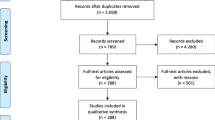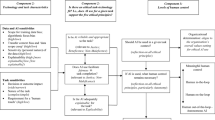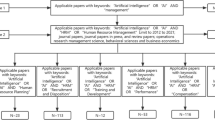Abstract
Organisations have realized that effective development and management of their organisational knowledge base is critical to survival in today’s competitive business environment. Employees, as a special knowledge asset, also attract the interest of many researchers because only through people communicating with one another can they really share their tacit knowledge and skills, which are often more valuable than sharing explicit documentations. The need to be able to quickly locate experts among the heterogeneous data sources stored in the organisational memory has been recognized by many researchers. This paper examines the advantages of using RDF (resource description framework) for expertise matching—the process of finding an individual with the required knowledge and skills. The major challenge is to semantically integrate multiple expertise indications from heterogeneous data sources stored in the organisational memory in order to facilitate users to locate the right expert(s). To understand the issues, a case study has been performed that involves building a RDF-based expertise broker that helps Ph.D. applicants locate potential supervisors before they formally apply to a university. An evaluation of the brokering system has been conducted through an experiment and the key results are presented. An extended brokering system that would support expertise matching in a multidisciplinary context is also described and further research identified.
Similar content being viewed by others
References
Abecker A, Decker S (1999) Organizational memory: knowledge acquisition, integration, and retrieval issues in knowledge-based systems. Lecture notes in artificial intelligence, vol 1570. Springer-Verlag, Berlin Heidelberg New York, pp 113–124
Abel M, Campbell JA, de Castilho JMV (1998) Analysis of expertise for implementing geological expert systems. Proceedings of the fourth world congress on expert systems. Cognizant Communication Offices, New York, pp 170–177
Ackerman MS, Halverson C (1998) Considering an organization’s memory. In: Conference on CSCW’98. ACM Press, Seattle, WA, pp 39–48
Baeze-Yates R, Ribeiro-Neto B (1999) Modern information retrieval. Imprint Addison-Wesley
Bannon L, Kuuti K (1996) Shifting perspective on organizational memory from ge to active remembering. In: Proceedings of the HICSS’96. IEEE Computer Press, pp 156–157
Bennis W (1997) Organizing genius: the secrets of creative collaboration. Addison-Wesley, Reading, MA
Berners-Lee T (1998) Why RDF model is different form the XML model. http://www.w3.org/DesignIssues/RDF-XML.html
Bishr Y, Kuhn W (2000) Ontology-based modelling of geospatial information. In: Proceedings of the 3rd AGILE conference on geographic information science, Finland, May 2000. http://www.ida.liu.se/edu/fsgis/portal/downloads/Agile2003-modelAbst.pdf
Bishop K (2000) Heads or tales: can tacit knowledge really be managed. In: Proceeding of ALIA biennial conference, October 2000, Canberra. http://www.alia.org.au/conferences/alia2000/proceedings/karen.bishop.html
Brasethvik T, Gulla JA (2002) A conceptual modeling approach to semantic document retrieval. In: Proceedings of the 14th international conference of advanced information system engineering CAiSE’02, May 2002, Toronto, Canada. Lecture notes in computer science, vol 2348, pp 167–182
Bray T, Paoli J, Sperberg-McQueen C, Maler E (2000) Extensible markup language (XML) 1.0. W3C recommendation, 6 October 2000. http://www.w3.org/TR/REC-xml
Brickley D, Guha RV (2000) Resource description framework (RDF) schema specification 1.0. W3C candidate recommendation, World Wide Web Consortium. http://www.w3.org/TR/rdf-schema
Busse S, Kutsche R, Leser U, Weber H (1999) Federated information systems: concepts, terminology and architectures. Forschungsberichte des Fachbereichs Informatik 99-9. http://citeseer.nj.nec.com/busse99federated.html
Clark J (1999) XSL transformations (XSLT). Version 1.0 W3C recommendation 16 November 1999. http://www.w3.org/TR/xslt.html
Clark P, Thompson J, Holmback H, Duncan L (2000) Exploiting a thesaurus-based semantic net for knowledge-based search. In: Proceedings of the 12th conference on innovative applications of AI (AAAI/IAAI’00), pp 988–995
Cohen AL, Maglio PP, Barrett R (1998) The expertise browser: how to leverage distributed organizational knowledge. In: The workshop on collaborative and cooperative information seeking in digital information environments at CSCW’98. Seattle, WA
Cross R, Baird L (2000) Technology is not enough: improving performance by building organizational memory. MIT Sloan Manage Rev 41:69–78
Cui Z, Tamma V, Bellifemine F (1999) Ontology management in enterprises. BT Technol J 17(4):98–107
Davenport TH, Prusak L (1998) Working knowledge: how organizations manage what they know. Harvard Business School Press, Boston, MA
Decker S, Mitra P, Melnik S (2000) Framework for the Semantic Web: an RDF tutorial. IEEE Internet Comput 4(6):68–73
Engestrom Y (1992) Expertise as mediated collaborative activity. In: University of Helsinki Department of Education Research Bulletin 83. Interactive expertise: studies in distributed working intelligence
Fensel D, Angele J, Decker S, Erdmann M, Schnurr HP, Staab S, Studer R, Witt A (1999) On2broker: semantic-based access to information sources at the WWW. In: World conference on the WWW and Internet (WebNet99), Honolulu, Hawaii, 1999. http://gunther.smeal.psu.edu/decker99onbroker.html
Foner LN (1997) Yenta: a multi-agent referral-based matchmaking system. In: Proceedings of the first international conference on autonomous agents (Agent’97), Marina del Rey, CA, February 1997, pp 301–307
Garcia-Molina H, Papakonstantinou Y, Quass D, Rajara-man A, Sagiv Y, Ullman J, Widom J (1997) The tsimmis approach to mediation: data models and languages. Intell Inf Syst (JIIS), Kluwer, 8(2):117–132
Gibson R (ed) (1996) Rethinking the future. Nicholas Brealey, London
Halpern JY (1998) A computing research repository. In: Digital library magazine, November. http://www.dlib.org/dlib/november98/11halpern.html
Horvath J (2000) Working with tacit knowledge. In: Cortada JW, Woods JA (eds) The knowledge management yearbook 2000–2001. Butterworth-Heinemann, pp 34–51
Hunter J, Lagoze C (2001) Combining RDF and XML schemas to enhance interoperability between metadata application profiles. In: Tenth international World Wide Web conference, Hong Kong, May 2001. http://www10.org/cdrom/papers/572/index.html
Kanfer A, Sweet J, Schlosser AE (1997) Humanizing the net: social navigation with a “know-who” email agent. In: Proceedings of the 3rd conference on human factors and the web, Denver, CO, June 1997
Karvounarakis G, Christophides V, Plexousakis D (2000) Querying semistructured (meta)data and schemas on the Web: the case of RDF & RDFS. Technical Report 269, ICS-FORTH. http://www.ics.forth.gr/proj/isst/RDF/rdfquerying.pdf
Lassila O, Swick R (1999) Resource description framework (RDF) model and syntax specification; World Wide Web consortium recommendation. http://www.w3.org/TR/REC-rdf-syntax/
Liao M, Hinkelmann K, Abecker A, Sintek M (1999) A competence knowledge base system as part of the organizational memory. In: Frank Puppe (ed) XPS-99/5. Deutsche Tagung Wissensbasierte Systeme, Würzburg. Lecture notes in artificial intelligence, vol 1570. Springer, Berlin Heidelberg New York
Mattox D, Maybury M, Morey D (1999) Enterprise expert and knowledge discovery. In: Proceedings of the 8th international conference on human computer interaction (HCI international’99), Munich, Germany, August 1999, pp 303–307
McDonald DW, Ackerman MS (1998) Just talk to me: a field study of expertise location. In: Proceedings of the 1998 ACM conference on computer-supported cooperative work (CSCW’98), Seattle, November 1998, pp 315–324
McDonald DW, Ackerman MS (2000) Expertise recommender: a flexible recommendation system and architecture. In: Proceeding of the ACM 2000 conference on computer supported cooperative work, (CSCW’00), Philadelphia, PA, pp 231–240
Pikrakis A, Bitsikas T, Sfakianakis S, Hatzopoulos M, DeRoure D, Hall W, Reich S, Hill G, Stairmand M (1998) MEMOIR—software agents for finding similar users by trials. In: Proceedings of the 3rd international conference on the practical applications of agents and multi-agent systems (PAAM-98), London, UK, pp 453–466
Seligman L, Rosenthal A (2001) The impact of XML on databases and data sharing. IEEE Comput
Sheth A (1998) Changing focus on interoperability in information systems: from system, syntax, structure to semantics. In: Goodchild MF, Egenhofer MJ, Fegeas R, Kottman CA (eds) Interoperating geographic information systems. Kluwer
Stewart T (1997) Intellectual capital: the new wealth of organizations. Doubleday, New York
Stuckenschmidt H (2000) Using OIL for intelligent information integration. In: Proceedings of the workshop on applications of ontologies and problem-solving methods at ECAI
Vdovjak R, Houben G (2001) RDF based architecture for semantic integration of heterogeneous information sources. In: Workshop on information integration on the Web 2001, pp 51–57
Wellins RS, Byham WC, Wilson JM (1993) Empowered teams: creating self-directed work groups that improve quality, productivity, and participation. Jossey-Bass, San Francisco
Yimam-Seid D (1999) Expert finding systems for organizations: domain analysis and the DEMOIR approach. In: Proceedings of the ECSCW’99 workshop on expertise management. Copenhagen 1999
Yukawa T, Kashara K (2001) An expert recommendation system using concept-based relevance discernment. In: Proceedings of 13th IEEE international conference on tools with artificial intelligence (ICTAI’01), November 2001, Dallas, TX, pp 257–264
Author information
Authors and Affiliations
Corresponding author
Rights and permissions
About this article
Cite this article
Liu, P., Curson, J. & Dew, P. Use of RDF for expertise matching within academia. Knowl Inf Syst 8, 103–130 (2005). https://doi.org/10.1007/s10115-004-0152-y
Received:
Revised:
Accepted:
Published:
Issue Date:
DOI: https://doi.org/10.1007/s10115-004-0152-y




